Remembering Art Martone — editor, boss, friend
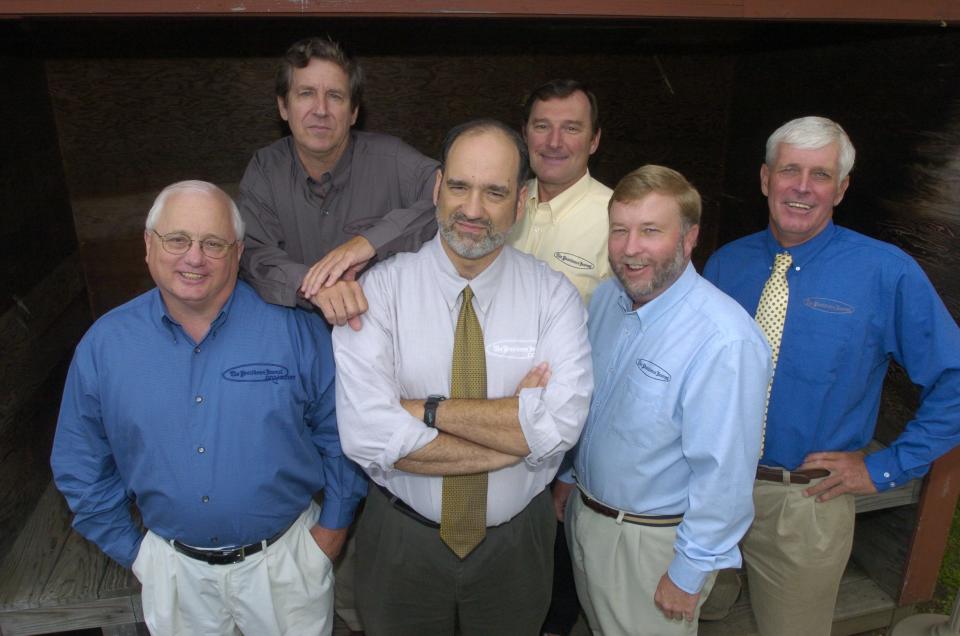
EDITOR'S NOTE: Anyone who worked with Art Martone — the longtime Providence Journal sports editor — quickly learned how knowledgeable he was, but more importantly, what a genuinely good person he was. His death last week touched all of us who knew him. Here, many of his former coworkers share their memories of him in tribute to their friend.
— Bill Corey
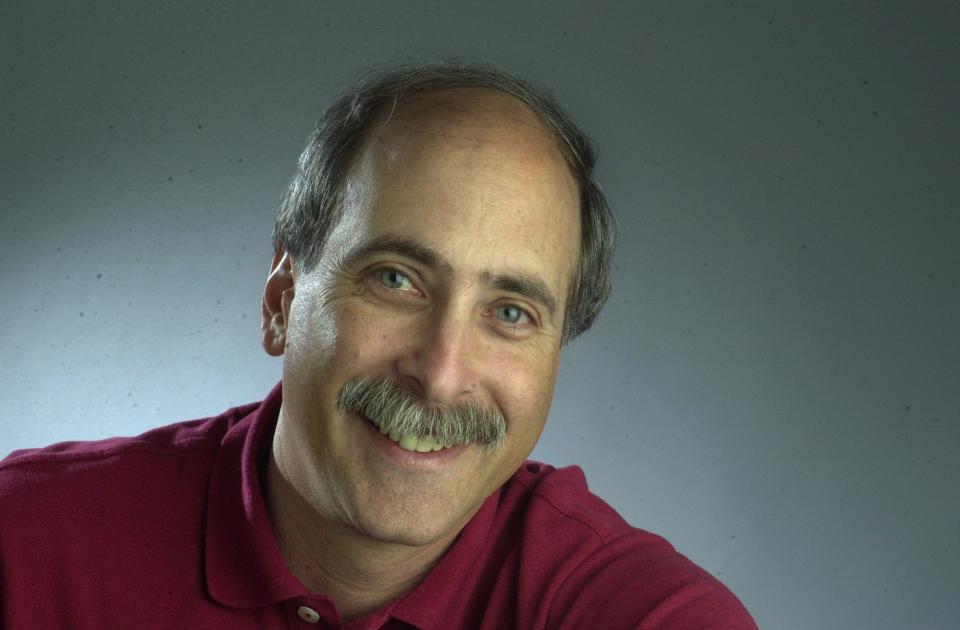
By Steven Krasner
Long before Art Martone was my boss as sports editor of The Providence Journal, he was a fellow Cranston West Falcon, keeping the scorebook for the baseball team. I was the third baseman, and Artie, as we called him, was generous and benevolent with his scorekeeping judgment calls, helping add a few points to my batting average.
You will be reading on these pages about Art Martone, the dedicated sports editor and all-around good guy who died much too soon. All of that is true. I was fortunate, though, to have known him as my friend.
In 1979, after my wife and I bought our house, the bedrooms needed painting. Hey, Artie, want to help? He was eager to do so. His payment was Jolly Jon burgers and buckets of KFC, and we were unskilled do-it-yourselfers, but he was the friend you could count on to help.
When our kids were little, Uncle Artie would visit and, at bedtime, he would time the kids running from room to room, picking up various toys he had spread around as a scavenger hunt. Giggles and laughter filled the hallway. He and his wife, Kim, helped us celebrate our kids’ weddings.
His scorekeeping skills were on display when I was a player-manager for the John Thell Builders baseball team in the Rhode Island Amateur League. Artie would come to the games and keep score. One year, he even kept a diary of our team, which was not very good but had a bunch of characters on it.
After the games, generally one loss after another, Artie and Mike Pagano, our player-coach and one of his best friends, would grab pizza and retreat to my house, where we would dissect the latest game and discuss who to pitch in our next game.
We arrived at The Journal around the same time, in the 1970s. While Artie was typing in the race agate from Lincoln Downs and I was working my way through the give-that-one-to-the-kid assignments, I remember telling him more than once, “Artie, one of these days, you and I, two kids from Cranston West, are going to be running this department.”
In many ways, that came true. I had the honor of covering the Boston Red Sox for the final 22 years of my 33-year career at the newspaper, and Artie worked his way up to sports editor.
He was humble, always. No big ego. He was just a genuine good guy with a passion for sports and his family. He will be missed dearly by Kim, their son, James, the rest of their family and everyone else who had the good fortune to have known Art Martone.

By Sean McAdam
Though he modestly shunned the spotlight, it is not at all accurate to say that Art Martone toiled anonymously in the field of sports media for more than 40 years. The outpouring of emotion across the industry and across the region following his passing last week was evidence of his enormous impact.
But because Art worked mostly behind the scenes, as an editor, he wasn’t as well-known as those who had a daily byline or regular time in front of a camera.
Let it be known, however, that many of those who worked for him — and I am enormously proud to say I was among them, at two different stops — would not have had the kind of careers we had without the support, encouragement and direction Art consistently offered.
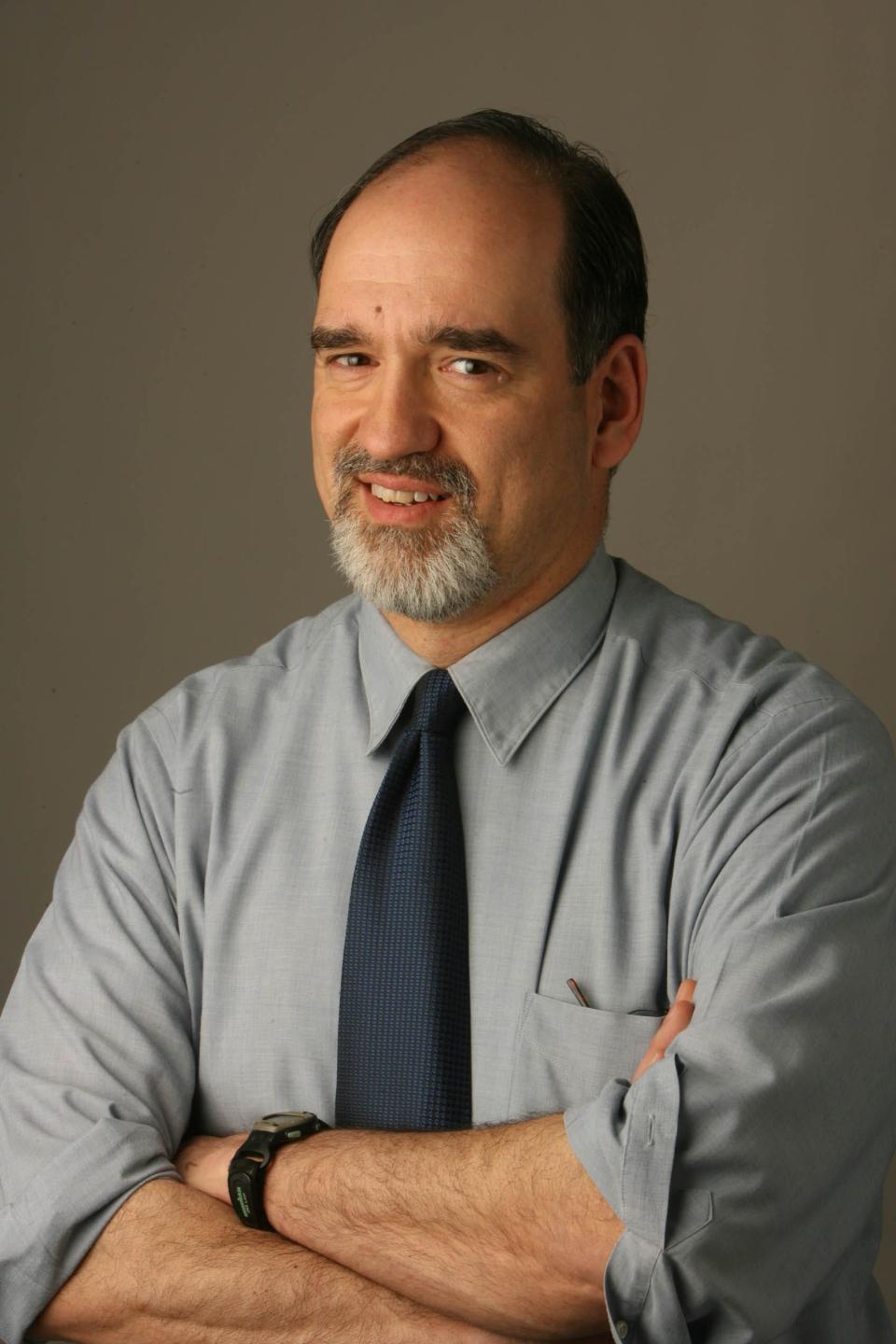
He had the uncanny ability to improve every story or column — either with a deft edit or a bit of necessary context. Like the best athletes, Art made everyone around him better. In the pre-internet days, having access to Art’s vast institutional knowledge of all things New England sports was like having your own walking, talking sports Wikipedia. After the internet was developed, he remained no less of a resource.
Part of what made Art so good at his job was his open-mindedness. He was among the first in the mainstream print media to make the transition to the digital world, and once there, he made sure to spotlight a new wave of sportswriting talent, many in the nascent world of blogging.
If our only ties had been in the workplace, he would still stand as a towering influence in my life.
But I was fortunate enough to call him a close friend, too. Beyond the workplace, we immediately bonded over our shared love of the Beatles, and even decades later, it was not uncommon for one of us to send the other an out-of-the-blue text message: “Top 3 ‘B’ sides?’’ And we were off.
We shared the joys and challenges of parenting, bemoaned the changes taking place in our industry, and talked politics. And when real life and work intersected, I knew where his loyalties lay. If you were dealing with a sick child or an important family event, those took precedence every time.
His professional legacy will be long-lasting, but his friendship was even more of a gift. His generosity, humanity and kindness will be impossible to forget or replace.
![Published Caption: JIM DONALDSON [Glenn Osmundson/The Providence Journal] Original Caption: JIM DONALDSON](https://s.yimg.com/ny/api/res/1.2/bDD8XXHV4e67sHgap9j5Ww--/YXBwaWQ9aGlnaGxhbmRlcjt3PTk2MDtoPTY0OQ--/https://media.zenfs.com/en/worcester-telegram-gazette/cc8fff50967326aaea2d920174c401da)
By Jim Donaldson
I can't say enough good things about Art Martone.
Which is what anyone who knew him would say.
He loved his family, his friends, sports and the newspaper business. And everyone who worked with him at The Journal loved him.
Arthur was fun to be around — always upbeat, with a great sense of humor. He needed it, with the cast of characters he dealt with in the Journal Sports Department back in what truly were the Good Old Days.
On Fridays during football season, when I'd write an irreverent NFL "picks" column for Saturday's paper, the mood in the office tended to get a bit raucous. To put it mildly. He once, albeit reluctantly, confiscated a hockey puck I'd tossed over a partition without realizing someone was on the other side. Or, perhaps, I did. It was a while ago. Arthur and I laughed about that for years. We'd laugh, too, about the lines for the column that he loved, but couldn't allow to be printed in the paper. We both loved the challenge. I'd laugh when I slipped one by him. More often, he'd laugh and, when he stopped, say, "Yeah. No."
On a personal level, he made every one of those Good Old Days better for everyone on the staff. On a professional level, he was an outstanding editor who improved every story he ever perused.
I had the utmost respect for Arthur as an editor. When writing my column, I'd often ask him to look at two or three "ledes" — opening paragraphs — to get his opinion on which he thought was best, as well as talk with him about the point of view I should take, and how it could most effectively be expressed. Nobody was better at that than Arthur. I relied on him, and he always came through.
I can't say enough good things about Arthur. And no one can anything bad about him. Not as a person. Not as a colleague. Not as a boss.
He was one of a kind. The best kind.

By Bill Reynolds
Arthur was a staple in the sports department even before I joined the staff and it was devastating to learn of his death. He was so easy to work with and was so good at his job.
They don't make them any better than Arthur. He knew what he was doing and there was nothing not to like about him.
He was even-tempered, never moody, very grounded.
He was super in every way, absolutely super.

By Kevin McNamara
When I first met Art Martone, I was 20 years old and couldn’t wait to experience the world of sports journalism and learn from the professionals at my hometown newspaper, The Providence Journal.
Art proved to be the perfect guidepost. Caring, inquisitive, selfless, a great listener and a good soul who loved his family. All with a hearty laugh that’s ringing in my ears these last few days.
Over the next two decades, Art was a constant presence in The Journal newsroom. No one worked harder, at all hours of the day and always deep into the night. He was a master craftsman at deadline, capable of finding the right angle for a story, the perfect headline and wrapping everything up on time.
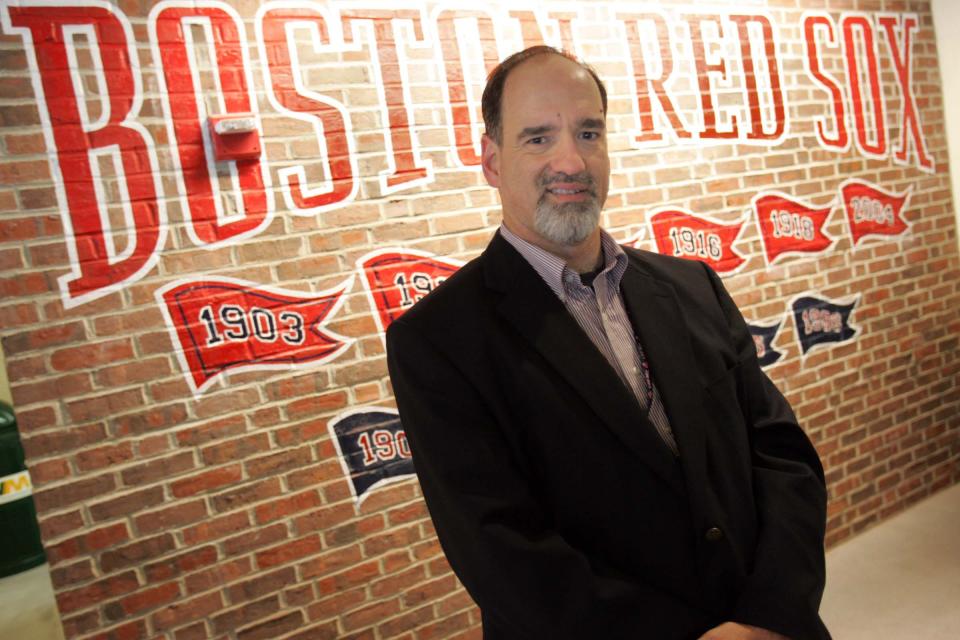
He was quick with a smile for everyone, always tap-tap-tapping his left foot and an array of pencils to the steady beat of the sports news world. His sports knowledge, especially of the local and pro hockey scene and everything Red Sox and baseball, was encyclopedic. He’d recall heroes, and goats, of games gone by in seconds. You want to know who threw the pitch to Bucky Dent (Mike Torres) or who caught the ball at first base that ended the Curse in 2004 (Doug Mientkiewicz)? Martone would spit the answer out before you finished the question.
Truth be told, it’s a sin that The Journal let Martone get away for the last decade of his career to NBCSports Boston. When he left, the paper lost a chunk of its heart. But the move allowed us to cross paths in press boxes at Fenway and Gillette Stadium and I treasured our conversations. Art offered sage advice and insight and our friendship certainly grew tighter.
When Art retired in spring 2019, I felt so happy for him. No more long drives to Boston, no more late nights. Instead he was free to come and go to the ballgame of his choice. After I moved on from The Journal, I asked Art if he’d like to write some of his thoughts on the Red Sox for my new website, KevinMcSports.com. He couldn’t wait to help and his deep Sox dives were, of course, excellent.
Then came the news of the last month. The shock, despair and unfairness knows no bounds. God bless to his family and legions of friends.
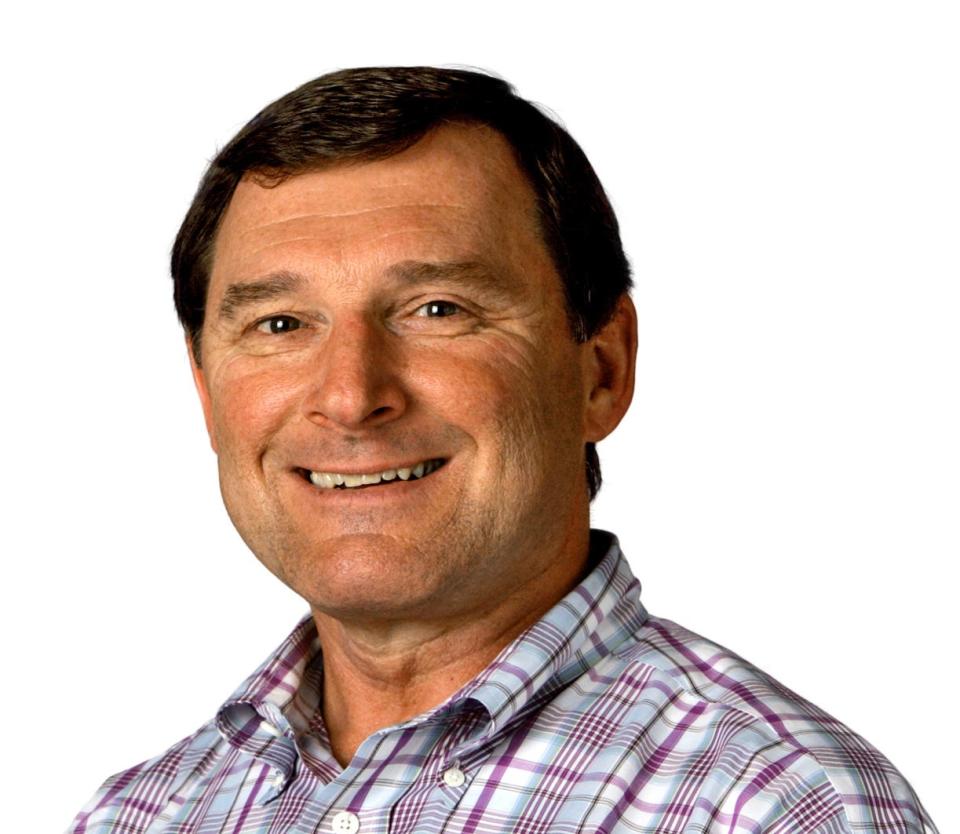
By Michael Szostak
Art Martone was a good man, loved by his family, admired and respected by the dozens of colleagues who worked with and for him during his long career at The Providence Journal and, for a decade, at NBC Sports Boston.
That’s the most important thing I will remember about Art, with whom I worked for 32 years. He was one of those rare individuals whom everybody liked. I never heard a derogatory comment about him, a compliment itself given the many constituencies he had to please while directing the largest sports department in the the state during a time of turmoil in the newspaper business.
He had an even disposition, a ready smile and a hearty laugh. He could mingle easily with professional stars in Boston and high-school benchwarmers in his hometown of Cranston. And he loved a good story, whether it was about a game, a personality or an issue.
A Rhode Island guy to the core, he was familiar with sports from Providence College, URI and Brown to the Pawtucket Red Sox and the Providence Bruins. He could tell you about the hockey tradition at Mount St. Charles Academy, the fierce rivalry between Catholic powers La Salle and Bishop Hendricken and the characters and coaches who breathed life into high school and college sports in the Ocean State.
Above all, Art was a Red Sox guy. He loved everything about the Boston Red Sox. He could discuss the Impossible Dream team of 1967, the oh-so-close finishes in 1975 and 1986, the David Ortiz championship years in the 2000s, and the drama of the recent pandemic seasons. He could also hold his own on the Patriots, Celtics and Bruins.
I met Art when I joined The Journal sports staff in spring 1977. He was already a veteran, a fixture in our corner of the newsroom. I can still picture him sitting at one end of the horseshoe-shaped copy desk, just to the right of the slot man Ken Hamwey, working his magic with the standings, box scores, transactions and other bits of information that went into the scoreboard page like pieces of a puzzle. He knew all the strokes for en spaces and em spaces and the other important keys that I forgot a long time ago. Bill Troberman was the only other player in the sports department who could match Art’s speed and skill.
As deadline approached and the pace quickened, some of us smoked or nibbled to cope with the pressure. I chomped on Mike and Ike candy. Art started pumping his left leg up and down, fast, his way of dealing and of setting the beat for the rest of the copy desk band.
As sports editor, Art was easy to work for, appreciated extra effort and was generous with his gratitude and praise. He also was savvy enough to see the future of print journalism in the digital world, not the newspaper page. He was an early proponent of blogging and wrote a popular blog himself. He urged us writers to do the same. Some of us old-school types were slow to adopt the new way of doing things but he never got upset with us.
The sports world was a better place with Art Martone in the game. He was a star in his own quiet way.
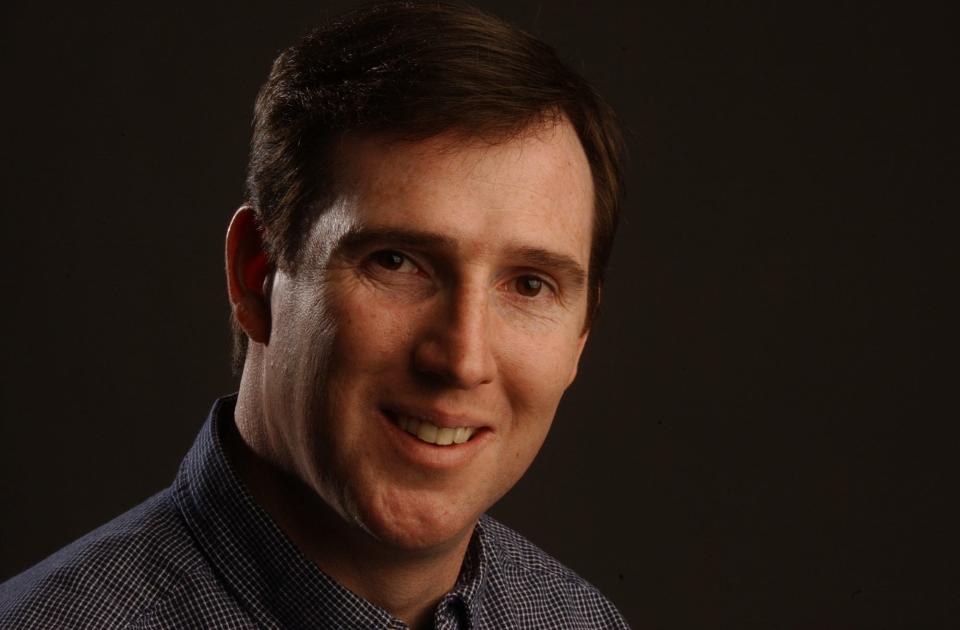
By Tom E. Curran
Arthur cared about everything.
Working with him for 14 years as my boss — and I loved calling him “boss” — was a privilege.
The way he poured himself every day into our product 1, the stories, videos and coverage — made us understand how much it mattered. All of it. Every day.
And if it mattered to him, it mattered to me because I never wanted to let him down. Because I knew he cared about me. Deeply. Not simply as an employee responsible for churning out copy, but as a person. He wanted to know how I was, how my family was.
I loved going into his office, plopping down across from him and laughing, venting, listening and just deepening a unique bond of friendship with someone who was my boss, mentor and friend. I don’t remember any conversations with Arthur in which he wasn’t fully invested and engaged. I’m sure there were many.
That’s how it is when you work with someone for a while. The majority of interactions are small ones. But my mind’s eye only sees Arthur either leaning in, eyebrows furrowed as he processes what I’m telling him or with that subtle, conspiratorial half-smile he had when I’m telling him something halfway amusing. And when we were done, he’d rock in his chair, slap both knees and stand up. He listened. He cared. He loved us and we loved him very, very much.
To Kim, James and the rest of Arthur’s family and loved ones, thank you so much for sharing him with us because he shaped us as people and was a living example of how important it is to care and care deeply.
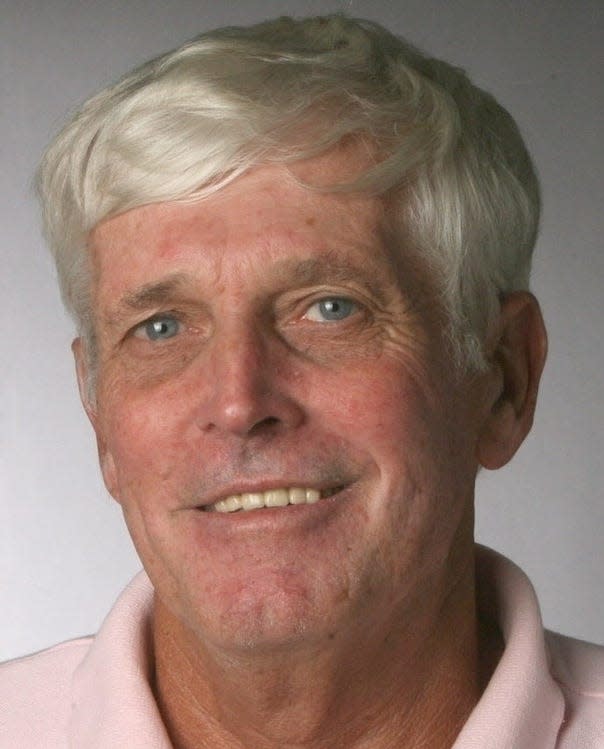
By John Gillooly
I first met Arthur Martone back in the early 1970s when he was still a Cranston West High School student writing sports stories for the Cranston Herald weekly newspaper.
Even back then, it was obvious that Arthur understood how chronicling athletic accomplishments could bring enjoyment and excitement to people's lives.
When Arthur came to The Providence Journal looking for a job, about the time he was graduating from high school, fortunately the powers-to-be at The Journal recognized Arthur’s talent and hired him for a part-time position in the sports department. That was the start of what eventually became an almost 40-year career at The Journal. With his talent and work ethic, it’s not surprising Arthur eventually became the Journal sports editor.
Arthur understood sports at all levels. He had been a Red Sox fan since his father took him to Fenway Park when he was a little kid and he developed an encyclopedic knowledge of Red Sox history. But he also always understood the importance of high school sports, especially in a small state like Rhode Island.
He was a visionary when it came to sports journalism. Long before people had ever heard about “Moneyball,” Arthur understood how statistics could heighten the enjoyment of reading about athletic accomplishments.
As The Journal sports editor, he challenged his writers to find the untold stories; to not allow our writing to get stale and he set the example for his staff. Nobody ever worked harder than Arthur to make Providence Journal sports special.
He was a husband and father and his family was the most important aspect of his daily life. But even beyond his family, Arthur truly cared about people, especially the people he worked with — and supervised. I was fortunate to have been one of those people and my life was better because I worked with Arthur Martone.
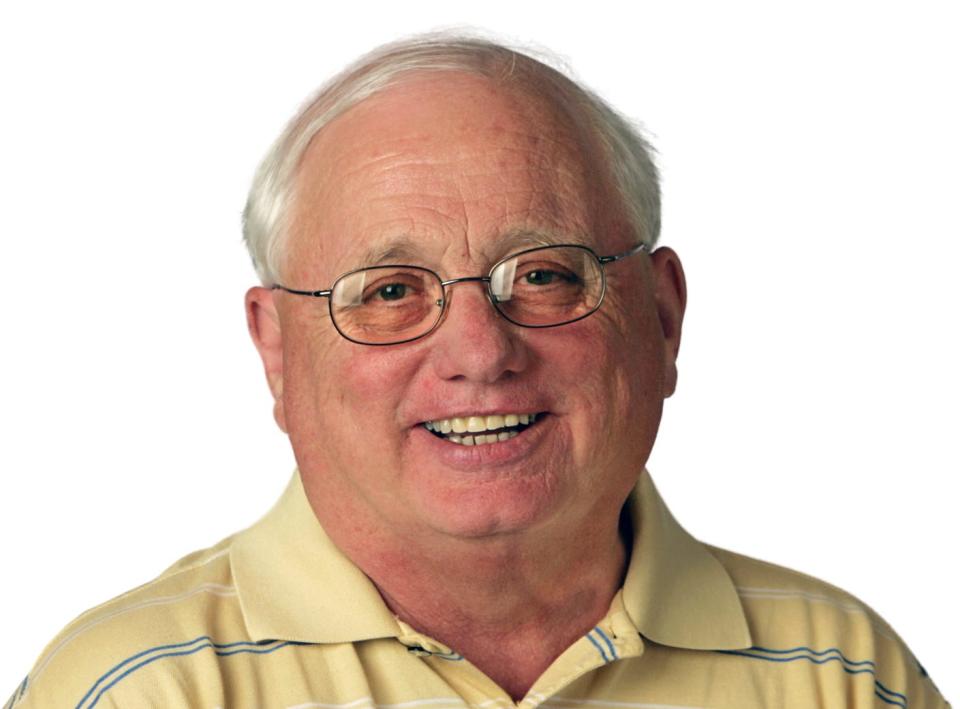
By Paul Kenyon
First and foremost, Arthur Martone was a friend. Secondly, he was a co-worker. And thirdly, he was my boss for the last 18 years I worked at The Journal. Arthur was good at all three aspects and virtually any aspect that he put his mind to.
He was a good man.
Arthur was one of the first people I met when I got hired at The Journal in 1977. He was younger than I was, but he was already a jack-of-all-trades at the Journal. He was often assigned to help John Gillooly and I cover high school sports. He was terrific to work with because he was very, very good at what he did.
Since he was a native Rhode Islander, he knew everything that was going on. We didn’t have to explain to him when a game was big or when it was kind of routine because he already knew. We did that for a few years before Arthur was moved around to be an editor.
It turned out that he was as good at editing as he was at writing, helping us put out the paper every day. You wanted him to edit your story because he was so good at it and so well aware of everything that he would correct any mistakes you might’ve made. He did that for quite awhile working as an assistant sports editor with David Bloss. When Dave left, it was an easy choice to move Arthur up as our new boss as sports editor. He was terrific to work with as an editor, because while he was a bundle of energy, he never changed.
We had conversations many times about athletes who becomes stars in sports and suddenly change their attitudes because they feel like “I’m a big star now and I don’t have to do this or that.” Arthur never did that. Arthur never changed. He was my friend when we were working together and he was my friend as sports editor.
You could talk to Arthur and he would listen. I feel so bad about losing one of my very best friends. I’m going to miss him.
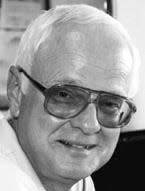
By Bob Dickson
First of all, Arthur was a terrific sports editor. He loved baseball. I’m a baseball fan, but he made me look like a casual interest in that sport.
Every now and then, we would go down to Yankee Stadium to see a game and would meet up with former Journal writer, now a legend in Philadelphia, Angelo Cataldi. This is what I remember about Arthur, other than he was just crazy watching the games, he just loved it, but on our way down he would stop at a McDonald’s and get this giant cup of Coca-Cola. He loved Coke. He would have that and then we would get to the stadium and he would get another giant cup of Coke.
We would always move around the ballpark, trying to improve our seats. When we would go down during a day game, there weren’t many people at the game and we had a great time talking baseball with Angelo.
OK, now it’s time to go, we’re heading back home and Arthur would stop at another McDonald’s to get another Coke. Good lord, he would drink gallons of it if he could. Of all things, that’s what I remember clearly about him. After I retired in 2001, you kind of lose track of what’s going on, but I would run into him and every time I’d see him, I would ask, “What a glass of Coke?”
Arthur was a terrific guy, a good editor. If he made changes, it was always for a good reason. He helped me when I came over from broadcasting into news writing because it was a world of difference. When I heard what happened to him, I was really sad, because we’re losing a number of good writers who were at the paper. We lost Bud Barker. We lost Dick Lee, Al Aleixo, Bob Leddy, so our group is getting smaller and smaller. But Arthur was a terrific guy. He was very easy to work with.

By Joe McDonald
No one loved The Providence Journal Sports section more than Art Martone. He poured his heart and soul into the paper for nearly four decades and his work ethic was infectious. He was kind, gentle and his passion for sports, especially baseball and hockey, was unparalleled.
I lived in the same Cranston neighborhood as Arthur and my friends and I would play street hockey in front of his house. I knew he worked at The Journal but never imagined he would one day become my co-worker and boss.
Even though I started in the circulation department at the Journal in 1992, I began my journalism career in the sports department in January 1995. Art was in the midst of transitioning to Rhode Island Horizons, which eventually became projo.com. He was instrumental in helping to create the new digital platform at the paper.
Every night while working as an editorial assistant, I heard plenty of stories about Art and would occasionally see him in the newsroom at 75 Fountain St., but never knew him personally, even though I grew up a block away from his house.
Art finally returned to the sports department as assistant sports editor under Dave Bloss. Both men helped shape my career path, and I’m forever grateful to both of them, but Art had a major impact on my life and career.
On Jan. 9, 2002, Art, who was the sports editor, called me at home and told me he needed me to come into the sports department earlier than my normal 5 p.m. start time.
“Is it good, or bad?” I asked Art.
“Hurry up and get in here,” he said.
I had applied for one of the vacant full-time sports writer positions and this was the moment I would realize my future. Art, along with the Journal’s hierarchy, greeted me in library. It was Art who congratulated me on my promotion. It would not have happened without his guidance.
From Day 1, he was a sounding board for me, and I always had plenty of questions. Art guided me with patience, passion and enthusiasm. He instilled a confidence in me that I didn’t know existed. During some turbulent times on my respective beats, I thought I was protecting him and the paper by speaking up and informing him of certain things, but it turned out that he was really protecting me with his advice.
A conversation with Art, no matter the subject, was always a joy. After both our career paths changed, I would still call him for advice. The best would be when we returned to the neighborhood and would share stories and a libation at McShawn’s Pub. I will miss those days. I will miss Art. He was a sweet man.
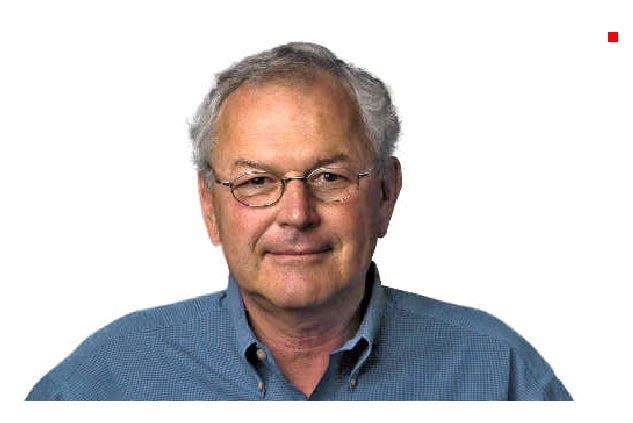
By Tom Meade
Knowing Art Martone was a privilege.
He was a sensitive editor and a kind man.
He spoke of his son James with such pride.
He spoke of his wife Kim with such love.
Knowing Art Martone was a blessing.

By Carolyn Thornton
It began as an impromptu conversation over chili about why more women weren’t reading the sports section.
It was winter 1993. Arthur Martone was The Journal’s assistant sports editor at the time. I was an editorial assistant, about three years removed from college.
He and I and a few other co-workers from the sports department had met to go skating on a local pond early one weekday afternoon. (Our days were free since we all worked second shift, when newspaper sports sections are produced.)
Back indoors warming up from our skate, the conversation turned, as it so often did, to the newspaper because anyone who knew Arthur knows that he lived and breathed The Providence Journal and was constantly thinking of ways to make the sports section better.
So, how might we attract more women readers, he asked?
Perhaps we need to include more content that appeals to them, I suggested.
Running, for instance.
At the time, Rhode Island boasted a robust running community ranging from weekend warriors to Olympians. Road races were held nearly every weekend and often attracted some of the best runners in the country.
No shortage of story ideas there, I said. Surely a running column would generate interest among female readers.
OK, then, let’s give it a try, Arthur said.
No matter that I was still just an editorial assistant at the time.
I accepted Arthur’s challenge. He communicated the plan to then-sports editor Dave Bloss, and the "Running Notes" column was born. It appeared in The Journal sports section at first biweekly and then weekly, developing a loyal following of both male and female readers over the next 12 years. It was also the beginning of a 25-year sportswriting career that would include following those Olympic runners to the other side of the world.
No doubt, Arthur understood then what it meant to give a young aspiring writer the opportunity to find her voice and hone her craft. He was the consummate team captain. Encouraging. Supportive. A steady guide. Demanding, of course, but also never hesitant to roll up his sleeves and do what needed to be done to hit our deadlines. He set the example for all of us with his passion, his work ethic and his commitment to excellence.
As colleague Tom Gardiner aptly described the ProJo sports copy desk with Arthur at the helm: “There was always time and room for fun, but the pride in the product and the sometimes frenetic pace was what thrilled me about working with Arthur.”
Anyone who had the honor of working with Art Martone would agree.

By Dan Barbarisi
When I first met Art Martone, I didn’t know a darn thing about sports, and that was suddenly his problem. So he taught me to cover them anyway.
I was foisted upon Art in fall 2008, moved over after seven years in The Providence Journal’s news operation — where I had been the Providence City Hall reporter — to a prime spot as one of the two traveling Red Sox beat writers. The problem? My baseball knowledge was that of the most casual fan; I think I could have named three Red Sox players at the time (David Ortiz, Dustin Pedroia and Kevin Youkilis, if quizzed). The bigger problem? I knew even less about the business of covering sports, which differs from covering news in many, many crucial respects, from the simple-but-opaque traditions like “never talk to the starting pitcher the day of a start” to the specific way sports questions are meant to be asked and phrased to get the proper outcome.
But Art never seemed to mind being saddled with this albatross. Instead, he saw it as yet another opportunity to teach, something he did with kindness and precision. Before an assignment, I would literally go to him and he would explain to me, in his sing-songy cadence, exactly who I should call, what I should ask them about and what the real issues at play were. Then I would write the story — that part I did mostly on my own, at least! — and he would offer his thoughts on where I should focus the next time.
I have never, before or since, been nearly as dependent on an editor as I was for those first few months, and yet he did more than endure it with a smile — he genuinely wanted to help, because helping was what he did and making people better was his calling.
I was lucky to have Art Martone as my first sports editor. I was luckier still to know him for 15 years. I wish it had been longer.

By Dave Bloss
Sixty hours a week, year-after-year. Chairs five feet apart. And as I sit here writing, I can’t remember one temper tantrum, one snit fit, not even a sustained loud argument.
Art oversaw production at a time when the Journal (and the afternoon Bulletin) often produced up to 200 unique sports pages a week, thanks to a print advertising boom in the 1990s, aggressive zoned high school coverage and a race every night to put late news and scores in as many newspapers as possible. Six deadlines every weeknight, about 25 minutes apart.
Workaholic would be an understatement. But other than the constant drumming of fingers on his desktop, Art never let anyone see him sweat. Smile on his face, quick with a laugh, he kept teams of reporters, columnists, photographers and editors smiling and laughing during the nightly races against the clock.
The work was basically putting together a jigsaw puzzle of stories, photos and game results, then knocking all the pieces off the table and starting over again — and again.
But the real puzzle was getting teams of people to work together — and this was Art’s gift. He understood each individual not as a fellow worker but as a person. He knew what was going on in their lives, in their families. He knew when it was OK to push someone and when it was time to lighten up. He had his own work-home balance figured out and would do anything to help those around him try to achieve that same balance.
What’s the cliché? Nobody on their deathbed ever said they wished they had worked more? I beg to differ. Art loved to work because he truly loved all the people who were working around him. The more the merrier. That’s why so many people feel so empty today.
This article originally appeared on The Providence Journal: Remembering Art Martone, longtime Providence Journal sports editor

